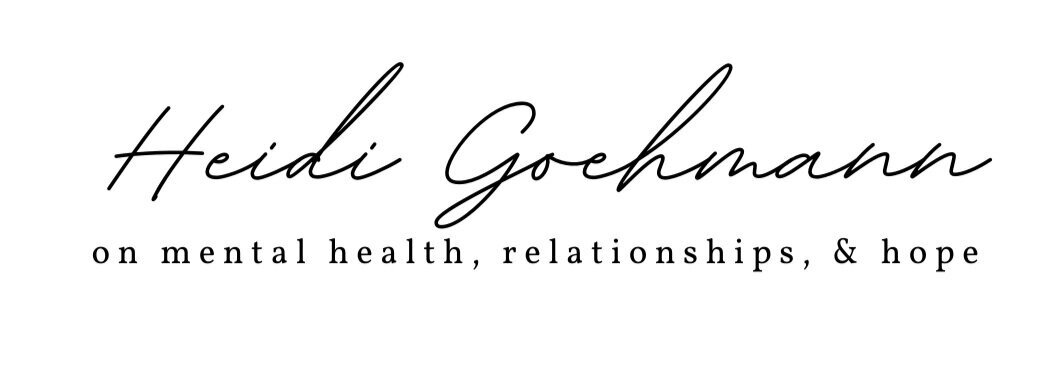The Many Sides of Mental Health: Acceptance & Constant Work
It is not uncommon for a client to come to me after three or so months of therapy and tell me that they are wondering whether they should continue. Therapy is a commitment, for sure. There is the time commitment, monetary commitment, and emotional investment. What I think is the primary precipitating factor for this common stage of therapy speculation is this:
Therapy is work.
Lots of work.
But here’s the thing: Life is lots of work.
One thing I like to remind people is that they are really doing the work whether they continue the conscious investment or not; with the therapy or without it. Life is work. Relationships are work. Shopping for groceries and making food are work. When you are depressed, getting out of bed is work. Showing up at your work … that’s work too. There is added work when we ignore and shove our struggles down deep.
Or we have another option: life can be work, but work that brings us acknowledgment, awareness, and acceptance.
Our mental and physical health will always be a certain amount of work - challenging work, good work.
Therapy, while sometimes uncomfortable, can make the work of life vibrant and fulfilling. It brings that work to our conscious, where change can happen and grace can transform.
The constant work of both therapy and life is best tackled with the other side of this mental health coin: acceptance.
One of the greatest benefits of therapy is a room where no one will judge you, a place you come to feel safe, able to share, able to wrestle with the questions offered, a space to take your time before reflecting on insight, a space for tears and anger spoken without hurting anyone or anything. If your therapy is not such a space, find a new therapist. Which, I get, is also work. But worth it.
That acceptance begins as a skill of the therapist, but a beautiful thing happens in the work of therapy and the work of diving into our mental health and stopping to take our medications and evaluating what we need in our relationships and making changes that leave us and those we love in a place of growth. The beauty is that acceptance becomes our own, rather than a resident in one room, in one place, with one person.
Acceptance without the work of rooting through who we are and what we believe, whether in the therapy room or in life in general, is only assumption, and we can sense the falsehood in that for ourselves. We feel off, dissatisfied, still longing for meaning.
God accepts us, wholeheartedly. We are assured of this in the person and work of Jesus Christ. He came, He died, He rose, He ascended, so that we could be fully assured of our acceptance, not half-sured. God also acknowledges in His Word that life will be work.
Come to me, all who labor and are heavy laden, and I will give you rest. Take my yoke upon you, and learn from me, for I am gentle and lowly in heart, and you will find rest for your souls.
Matthew 11:28-29
It’s part of the reality of life in a broken world — the work of life will feel hard, will be hard. It helps to remember that work, without the reality of sin mixed in, is a good thing; so work, even with sin thwarting our efforts and making everything so complicated, sorting and understanding ourselves is still good work.
Acceptance reminds us that it is well with my soul just as things are, even when it doesn’t feel “well.”
God is still in charge. Jesus will still come again.
We can accept a complicated diagnosis like Bipolar Disorder, Generalized Anxiety, or PTSD, because those are realities in our life, not realities that define everything about our life and our souls. The duality of acceptance & constant work reminds us that it is a good process to engage in treatment and seek help and follow through with appointments and good nutrition and finding the support we need, and to know we are still loved by the God of the Universe even when we don’t.
God gives us peace for our souls, but also help for our days.
Acceptance & Work. This is one of the many sides of mental health.
Up Next - The Many Sides of Mental Health: Microaggressions & Good Intentions
In the Meantime -

